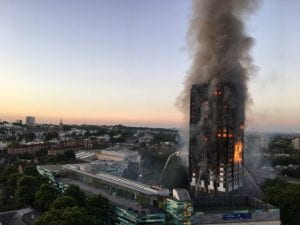I value a good story that keeps the audience awake, I don’t want to bore them.
We caught up with Lidija Burčak who graduated in MA Visual Anthropology last year and to find out what she has been up to since graduating and how her film ‘Broken Skin’ has made its way around the festival circuit.
Before Goldsmiths, you have lived and worked in UK, Switzerland, Bosnia and Herzegovina, could you tell us more about what you did before studying MA Visual Anthropology at Goldsmiths and has this inspired your visual practice?
I had a lot of different jobs during my twenties because I was searching for something creative that was meaningful to me. At the same time, it was difficult to get into such job because I started my professional career with a vocational education in a Swiss insurance company. After a few internships in media companies and jobs in factories and offices, I decided to go back to school. The Swiss education system allows people to catch up on an academic degree. My plan back then was to study abroad. I was interested in cultural, social issues and how knowledge is generated through visual means. During my studies, I got into the film industry as I had the chance to do an internship as a script supervisor. You can learn a lot about filmmaking and the work on set. I started realising that I wanted to make films in a very personal way but at the time I didn’t have the courage.
Being born in 1983, the time I spent growing up in front of the TV has had a large influence on my visual practice, I watched a lot of films and TV shows. I was able to challenge this common visuality through my film studies in Zurich and Berlin, where I acquired knowledge on film theory and analysis. I was introduced to auto-ethnography and the films of Agnès Varda, which opened up a whole new world for me. But also my jobs in different offices and workplaces influence my visual practice. How people share ideas and visions, how they tell you how their weekend was and what upsets them is beautifully diverse. I didn’t know at that time that these were precious lessons about storytelling.
It was clear to me that Goldsmiths would be an interesting decision. Also because it has a history of visual anthropology that challenges images and the way we see.
Why did you choose to study at Goldsmiths and take our course?
During my studies in Zurich, I was reading Stuart Hall which helped me personally with questions of identity being a child of Yugoslav immigrants in Switzerland. Having working-class parents forced me to read and think about these kinds of issues. It was clear to me that Goldsmiths would be an interesting decision. Also because it has a history of visual anthropology that challenges images and the way we see. At that time I didn’t know that it would be a very fertile ground for my creativity as well. We didn’t have lessons on the creative practice (I don’t know if that exists any-way?), the course was great on an academic level in anthropology but how do you make an interesting film, what do you film and how do you edit? Not having lessons in that area was highly creative in a painful way, I remember that some tutors told me that I will appreciate that process in a few years time.
Since graduating last year, your film Broken Skin has won awards and has started to make its away around the festival circuit. Could you tell us more about these awards and achievements?
The film festival world is a weird industry but I wanted to bring my film to an audience. I found a website that helps you to evaluate your chances to get into festivals called Festival Whizz. Its uses algorithms but there are also real people behind it who watch your film and discuss your strategy. To give you some numbers: I applied to 60 film festivals all around the world which cost me £725 for admission fees. Some of the festivals invite you, pay your ticket and organise accommodation and some festivals offer you a 50% ticket reduction to your own award ceremony, which was funny to hear. No one talks about these things, why not? I found it very interesting. I told myself: this is the first film I did and I will do the whole thing to find out what is really important to me and to check out the scene. Also I could afford it because I had a job. It is great when you have an audience for your film and you can actually discuss the topic and share your experience of the process.
It is great when you have an audience for your film and you can actually discuss the topic and share your experience of the process.
Can you talk to us about Broken Skin, what inspired you to direct a film about skin and more specifically psoriasis?
I’ve been a psoriasis-affected person more years than I’ve been an anthropologist. My relationship with this disease was full of fear and helplessness. I tried a lot of things to heal, as many people do. You get into a vicious cycle. But before I came to London I started a therapy which finally helped me: I detoxed my body in a natural way. I was very slowly on my way to heal. I realised that hearing from many doctors “you will have this forever” and “there is nothing we can do” influenced my way of thinking enormously. So from an anthropological point of view, this looked like something interesting to explore. How are stories around a disease told and how is it visually represented? Consequently, what is this doing with me? Who is an expert and who is not? It was interesting to relate to other stories and to find out that I am not alone, which seems obvious today. My goal then was to find images that would not spread fear but could explore psoriasis on different surfaces.
I chose auto-ethnography as a research method because it allowed me to move back-and-forth between my own experience and the accounts of other psoriasis-affected people to find out new ways of relating to this disease, also personally. It was a parallel exploration of this topic which is also visible in the narrative structure of the film. I know that auto-ethnography is being criticised for not being a valuable research method for example because it is supposed to be too narcissistic. However, this method resonates with me especially in order to examine psoriasis where, in my opinion, the self and the relationship to the self is at its core. I think that I worked ethically and honestly. I am a fan of auto-ethnography because it allows me to change and cultivate my personal perspectives not just as a researcher but as a person. I value a good story that keeps the audience awake, I don’t want to bore them.
What is next on the horizon for you?
I need a lot of time to reflect on the last two years and I don’t want to get stressed otherwise I’ll get my psoriasis symptoms back. Some people who watched Broken Skin told me that they could have watched it longer, that the film is too short and has therefore a dense structure. I just started playing with the thought to make a longer version.
If you could give our Anthropology students one piece of advice, what would it be?
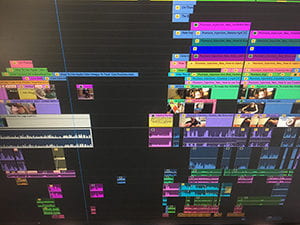 Something very technical: Keep your project and timeline in your editing programme in a clear order, I didn’t do it from the beginning, a lesson I learned along the way. You might still need to work on it or correct something (for a festival for example) months later after you finished it. This helps to access your work in a clear way especially when you are already working on something new.
Something very technical: Keep your project and timeline in your editing programme in a clear order, I didn’t do it from the beginning, a lesson I learned along the way. You might still need to work on it or correct something (for a festival for example) months later after you finished it. This helps to access your work in a clear way especially when you are already working on something new.
And two personal things that I discovered: fearful topics have a very interesting potential for personal and creative growth, and I get much more things done if I don’t strive for perfection. That doesn’t mean that the work is not good.
Lidija’s film ‘Broken Skin’ has been nominated for a Grierson Award in the category of Best student Documentary, winners will be announced on 14th November 2019
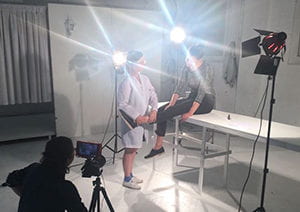
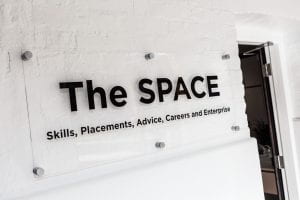

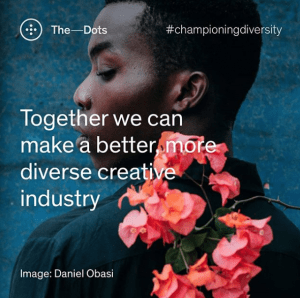
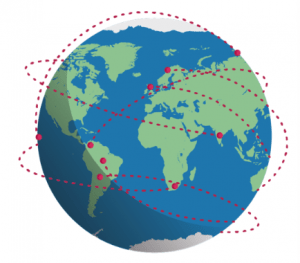
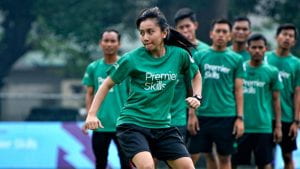

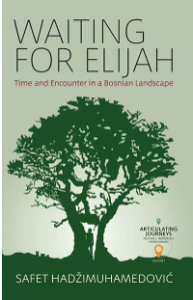

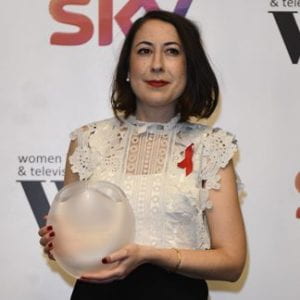
 An alumna of the department has gotten in touch regarding an exciting internship opportunity with InsightShare which they would like sharing with our students. InsightShare is offering a three month internship to a person passionate about indigenous rights, cultural resilience, advocacy, local food systems and land struggles, to play a leading role in organising a very special series of events for the
An alumna of the department has gotten in touch regarding an exciting internship opportunity with InsightShare which they would like sharing with our students. InsightShare is offering a three month internship to a person passionate about indigenous rights, cultural resilience, advocacy, local food systems and land struggles, to play a leading role in organising a very special series of events for the 